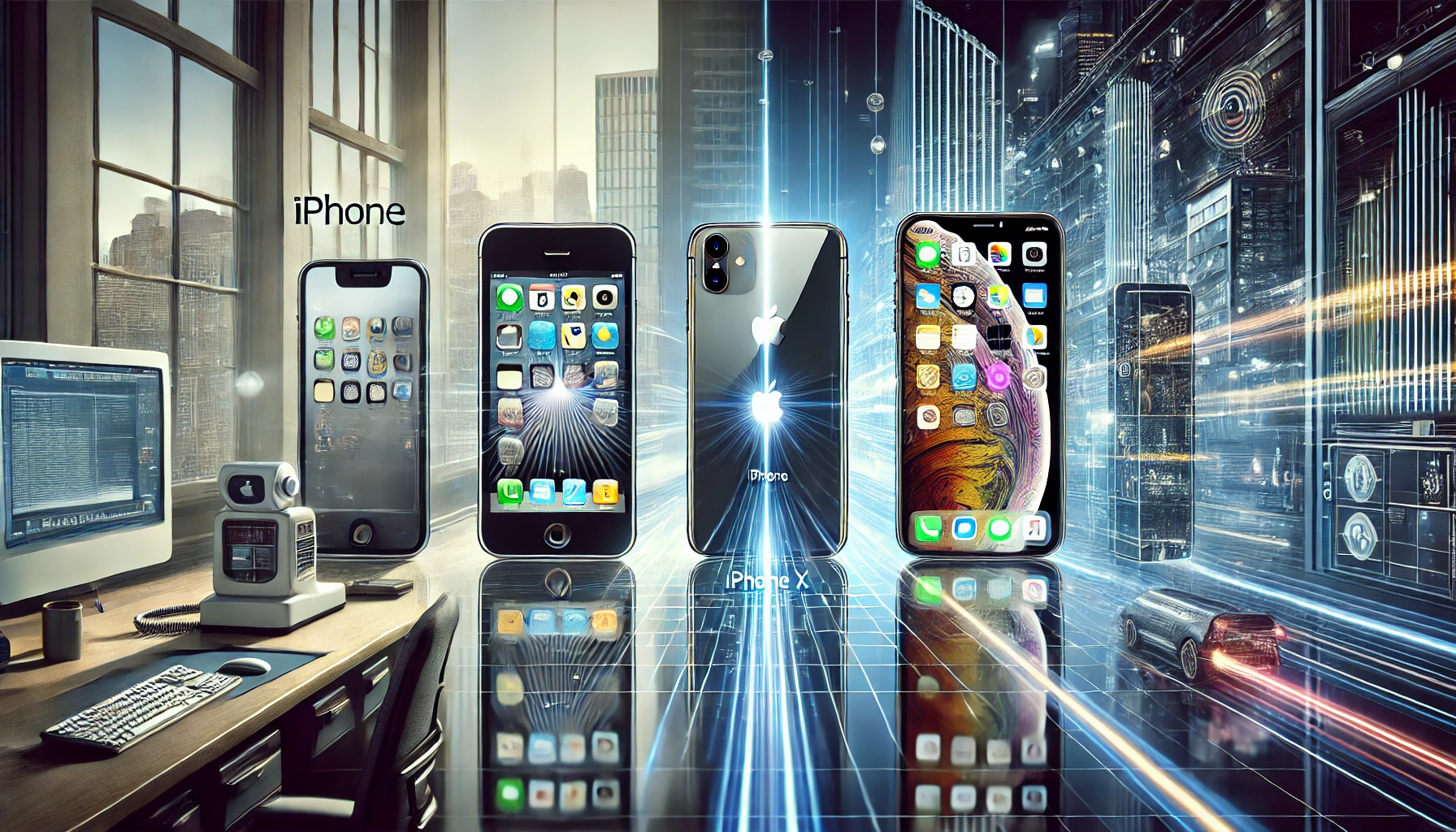
iPhone is a device that revolutionized the technology industry from the moment it was launched in 2007. Under the leadership of Steve Jobs, Apple introduced a phone that not only combined communication functions but also opened the door to new mobile possibilities. The iPhone quickly became a symbol of modernity, innovation, and ease of use, with each new generation bringing features that set industry standards.
The Beginnings of the iPhone
The first iPhone debuted in 2007, introducing a touchscreen and an intuitive user interface to the market. Unlike other mobile phones at the time, the iPhone lacked a physical keyboard, allowing for a larger screen and greater flexibility in using apps. This was a true revolution that changed the way people used mobile phones.
Evolution and Innovations
Each new generation of iPhone brought significant changes and improvements. The introduction of the App Store in 2008 allowed users to download applications, revolutionizing the smartphone market. Further innovations, such as the Retina Display (high-resolution screen), Face ID (facial recognition technology), and multi-lens camera systems, solidified the iPhone’s position as a leader in mobile technology.
The Impact of iPhone on Culture and Society
The iPhone not only revolutionized technology but also influenced culture and the way people communicate and consume media. Thanks to the iPhone, new possibilities emerged for remote work, taking professional-quality photos, and easy access to entertainment and information. Social media platforms like Instagram and TikTok gained popularity thanks to the advanced camera features in iPhones.
The Future of iPhone
Apple continues to work on new innovations, such as the further development of 5G technology, augmented reality (AR), and artificial intelligence (AI). The iPhone remains a key product for Apple and continues to shape the direction of the entire technology industry.